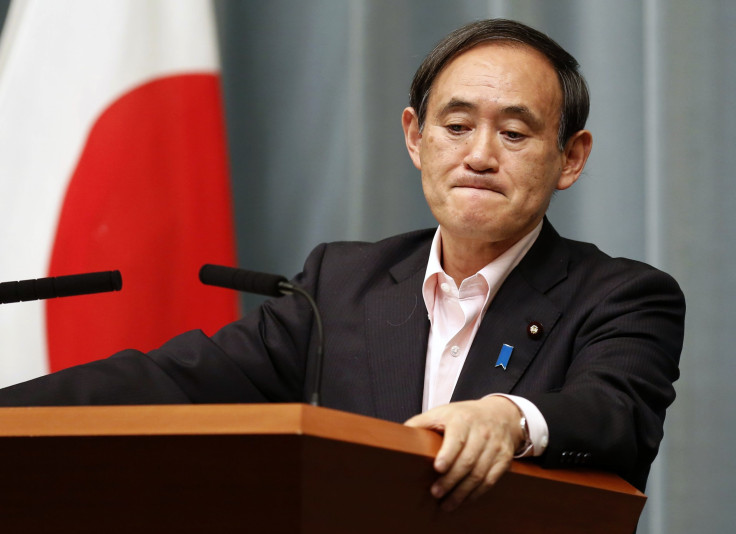Ebola Epidemic: Japan Could Offer Unapproved Ebola Drug, Government Official Says

A top government official said on Monday that Japan could offer an unapproved drug to help treat Ebola under certain conditions even before the World Health Organization, or WHO, decides to make a request for the drug. Yoshihide Suga, the chief cabinet secretary, said that Japan was ready to contribute to the international fight against the deadly virus and would cooperate with the WHO.
"I am informed that medical professionals could make a request for T-705 in an emergency even before a decision by the WHO. In that case, we would like to respond under certain criteria," he said, according to a Reuters report.
T-705 is the development code for Favipiravir -- an influenza drug that Japan’s FUJIFILM Holdings Corp (TYO:4901) and its U.S. partner MediVector plan to use in the fight against Ebola and are currently seeking the approval of the U.S. Food and Drug Administration or FDA.
The WHO declared the Ebola outbreak an international health emergency earlier this month. So far, more than 1,350 people -- mostly in West Africa -- have been killed in the latest outbreak of the virus, which was first discovered in 1976.
Despite international aid in the form of funds, medicine and health care personnel pouring into West Africa -- the region worst hit by the outbreak -- an average of more than 25 people died each day in August in Guinea, Liberia, Sierra Leone and Nigeria, the three countries where the disease has taken its highest toll, according to latest WHO figures. The disease is spreading rapidly with the rate of deaths nearly doubling since July, when 13 people on average died each day.
Kent Brantly and Nancy Writebol, two American health aid workers who recently contracted Ebola while serving in Liberia, have recovered and have been released after being flown last month to a hospital isolation unit in Atlanta where they were treated for the deadly tropical virus, aid groups announced Thursday.
Brantly was reportedly brought back from the brink of death while still in Liberia with the help of experimental serum ZMapp, which developers and health officials are scrambling to produce for large-scale distribution in West Africa.
Brantly and Writebol’s aid groups, Samaritan’s Purse and SIM, secured the experimental drug for them, which the FDA normally restricts for export because it hasn't yet been approved for use on humans.
However, Dr. Bruce Ribner of Emory University Hospital's infectious diseases division, reportedly said, "We don't know if it helped them... or even delayed their recovery," when asked whether ZMapp helped Brantly and Writebol recover.
© Copyright IBTimes 2025. All rights reserved.





















